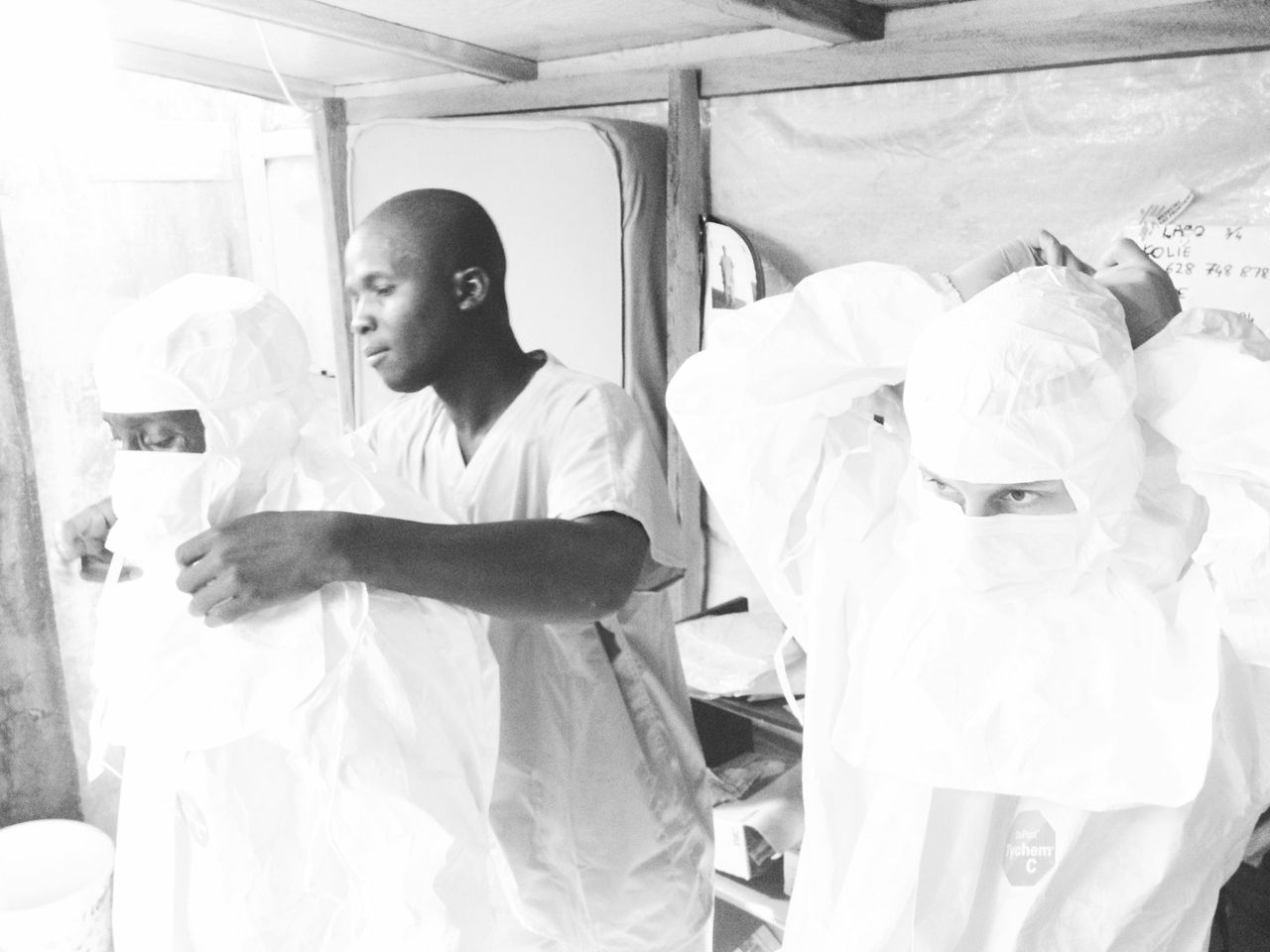President Barack Obama’s visit to the Centers for Disease Control and Prevention (CDC) for an update on the situation in West Africa last Tuesday has prompted me to take some time to discuss a searing issue I’ve noticed that regards the United States’ approach to viewing and talking about the current Ebola crisis. Where, among the coverage, are West African participants in all of our discussions on the subject?
We’ve taken to speaking of what’s going on in terms of this distant, cold possibility – an international health crisis – but have forgotten the essential element: the people whose lives are being upturned.
I wasn’t able to put my finger on what was bothering me about the discussion surrounding the Ebola crisis until my cynical brother pointed it out to me: “No one here really cares. We just assume it’s Africa, and it’s bound to happen.” He was right. We’re a nation of willing amnesiacs, marrying ourselves to binary thinking so as not to disturb the fragility of our moral high ground.
When I hear conversations around campus, the city and in the media about Ebola, they’re about the need to solve the crisis for the sake of preventing a worldwide pandemic, not about the need for bringing aid to the people of Sierra Leone, Liberia, Guinea and other affected areas.
We’ve essentialized West Africa and West Africans into a place and people where and to whom things like this just happen. The scenario surrounding Ebola is the same as those surrounding the civil crises of the region. We have little interest in learning why things are the way they are or in believing that they could get better, given some thought and dedication on our part.
Chalking the hardships up to “it’s Africa” is easier than partnering with West African leaders to assist in sustainable solutions, or even taking the time to understand the nuances of the situation. So, we shrug and passively keep hoping the CDC can wrangle the chaos. I am stung by this lack of compassion in my country, myself included, by this tendency to neglect the reality of millions of people with lives as valid as ours who have the threat of death looming daily.
This disregard for humanity is manifested in many ways, best exemplified in this situation by the absence of a concerted effort to raise money for people affected by the Ebola crisis. There are pretty much innumerable instances in which a catastrophe occurs, and the rest of the world responds with vigils, bake-sales, telethons and benefits.
Take the 2010 earthquake in Haiti, for example. I can distinguish that autumn apart from others because my high school was in relief-frenzy. Calls for donations could be heard across the span of civil service, and no one was immune from thinking about Haitians and their hardship.
There has been none of this for West Africa regarding the current Ebola crisis. Yes, there has been a push to “flood” the region with health-workers (CNN’s terminology), but this is for pragmatic, not humanitarian, purposes.
The outbreak needs to be controlled lest it spread further throughout Africa and possibly elsewhere, so an increase in health workers is necessary. More health care workers and resources certainly wouldn’t hurt, but West Africa needs a whole lot more than that.
Schools and universities have shut down. Ministries, too, have been closed. Whole communities, such as West Point in Liberia, have been quarantined and unrest has resulted. Food in the rural parts of the country has become extremely hard to come by, and the cities are becoming similarly bereft. People that need to see doctors for things unrelated to Ebola (such as pregnancy or a broken leg) are either avoiding going to the hospitals or are denied access. Almost no one is getting paid because the vast amount of government ministries, restaurants, shops and offices have shut down or severely cut hours. The list goes on. What it all comes down to is that this Ebola outbreak is more than a threat to the health and safety of the rest of the continent and the rest of the world, it’s a huge eruption in the lives of West Africans.
I don’t want to make it out to seem like people are absorbed in their own misery – that would be the exact essentialization that has riddled the United States’ response to this crisis. Rather, these are regular people with regular lives now struggling against a behemoth of a disease.
To this end, I’d like to share some messages I have received during the past week from several close Liberians I had the grace of meeting and spending time with over the summer.
From my host-dad, Siafa: “Joanna, we are doing great and hanging on. The kids are doing ok. My son is back from Gbarnga, but school is still closed. Have you been able to cook the palm butter? Are your parents doing good? My regards to all of them.” From my host-mom, Finah: “Hey, thank God you’re doing okay. But as I told you we’re doing good, but the situation is getting out of hand here. I really do miss you a lot. Say hi to mom and dad for me. Take care.” And from my good friend, Gowee: “I am sure you now have no headache to worry about Ebola, for us we have nowhere to go, this is our home.” In all three, there is a tremendous determination to keep living normally.
Back home, I ponder what it is I can do to help the situation, and I know it is to help the West Africans return to their lives. The biggest two steps we can make in this direction are to first, recall that this crisis is affecting real, human lives and second, to thus respond like humans, in whatever ways we can.
This could mean any number of things: donations to small organizers who are giving out basic aid (soap, bleach, oil, rice, etc.) in their communities, letter writing campaigns to congressmen and congresswomen to push for more food and humanitarian aid to the region from the federal government, or even just some simple research to find out more about the countries affected and the efforts they have taken themselves to combat Ebola.
Anything that bodes of taking an interest in the many millions of lives that are being interrupted and then some by this disease would be helpful. As Dr. Paul Farmer, the Robin Hood of public health who is in Liberia now, put it, “The only real nation is humanity.” If we commit ourselves to stop ignoring the world and see this notion of humanity through, we could stand to do a lot of good.
Yes, there are problems in West Africa, but no, they are not insurmountable.
The resources exist, the capacity exists and the ideas exist to really change things for the better all over the world, starting with this Ebola outbreak. It’s more than an idealistic thought – it’s an obligation of our human nation.
– By Joanna Satterwhite
The Emory Wheel was founded in 1919 and is currently the only independent, student-run newspaper of Emory University. The Wheel publishes weekly on Wednesdays during the academic year, except during University holidays and scheduled publication intermissions.
The Wheel is financially and editorially independent from the University. All of its content is generated by the Wheel’s more than 100 student staff members and contributing writers, and its printing costs are covered by profits from self-generated advertising sales.





